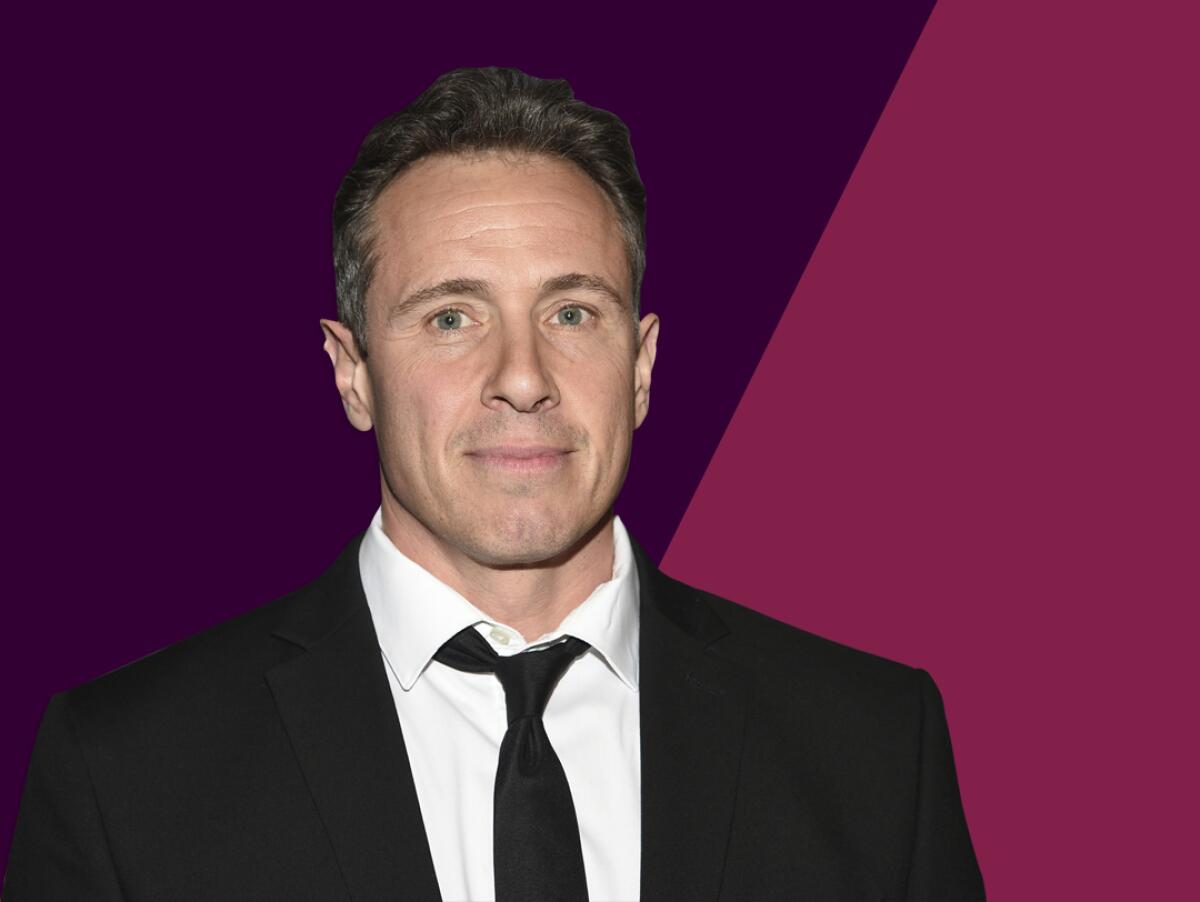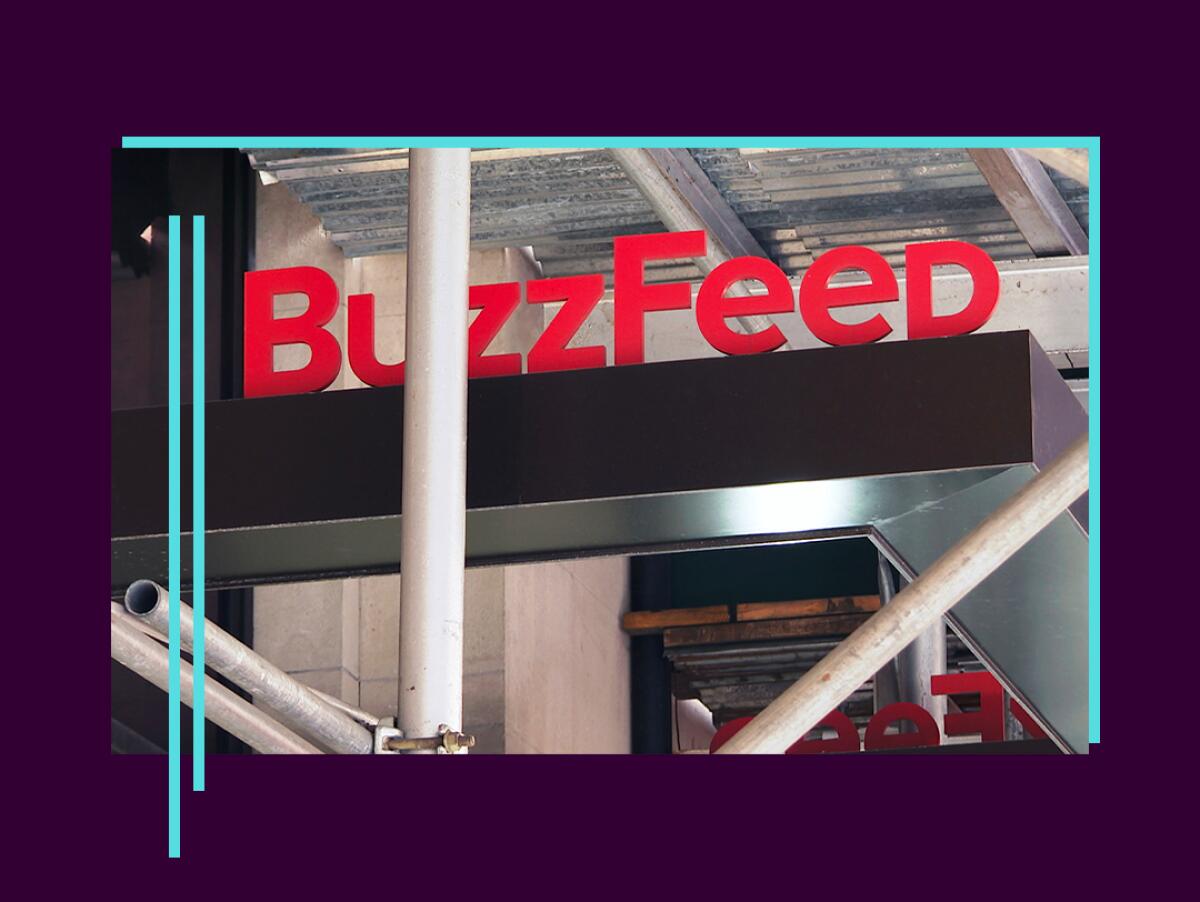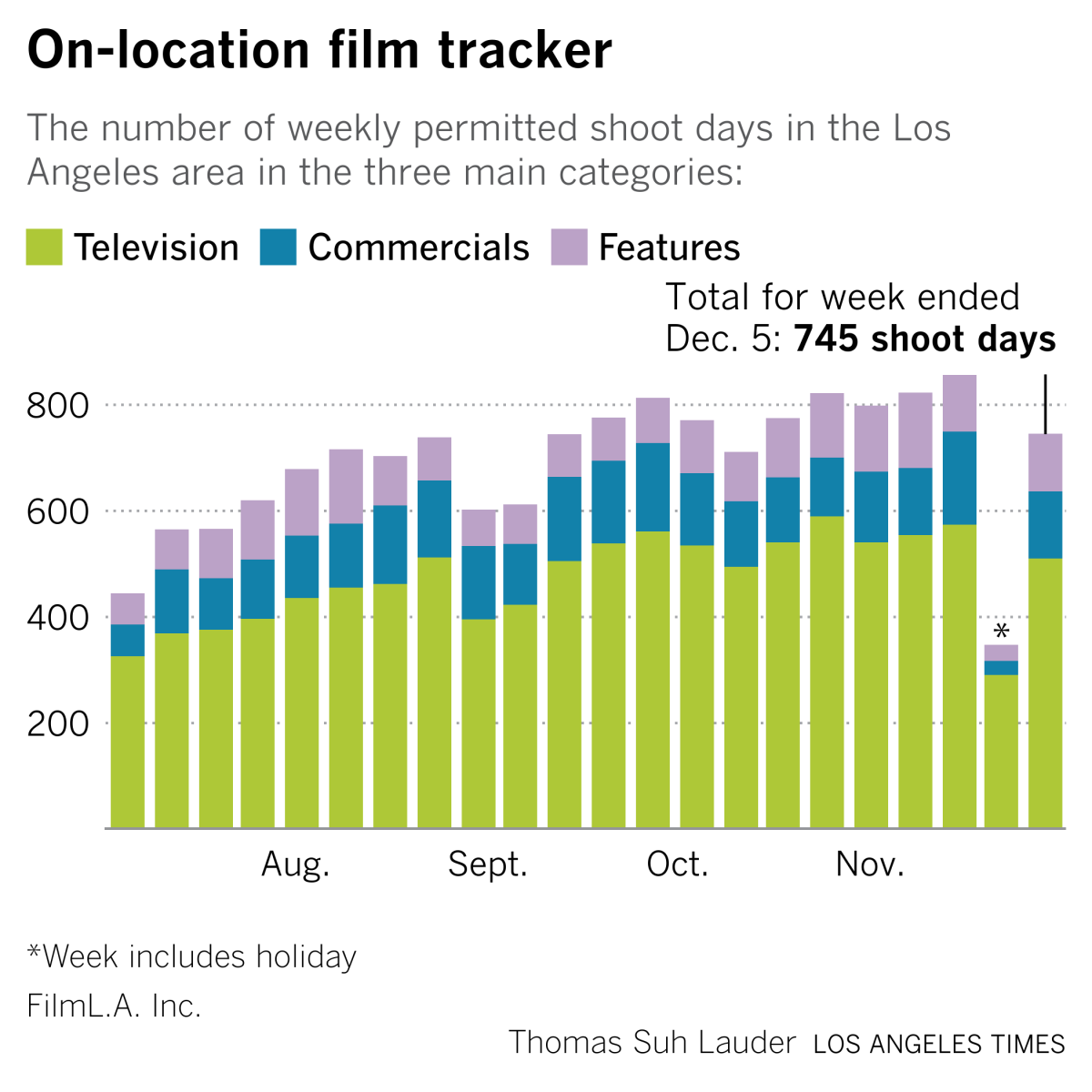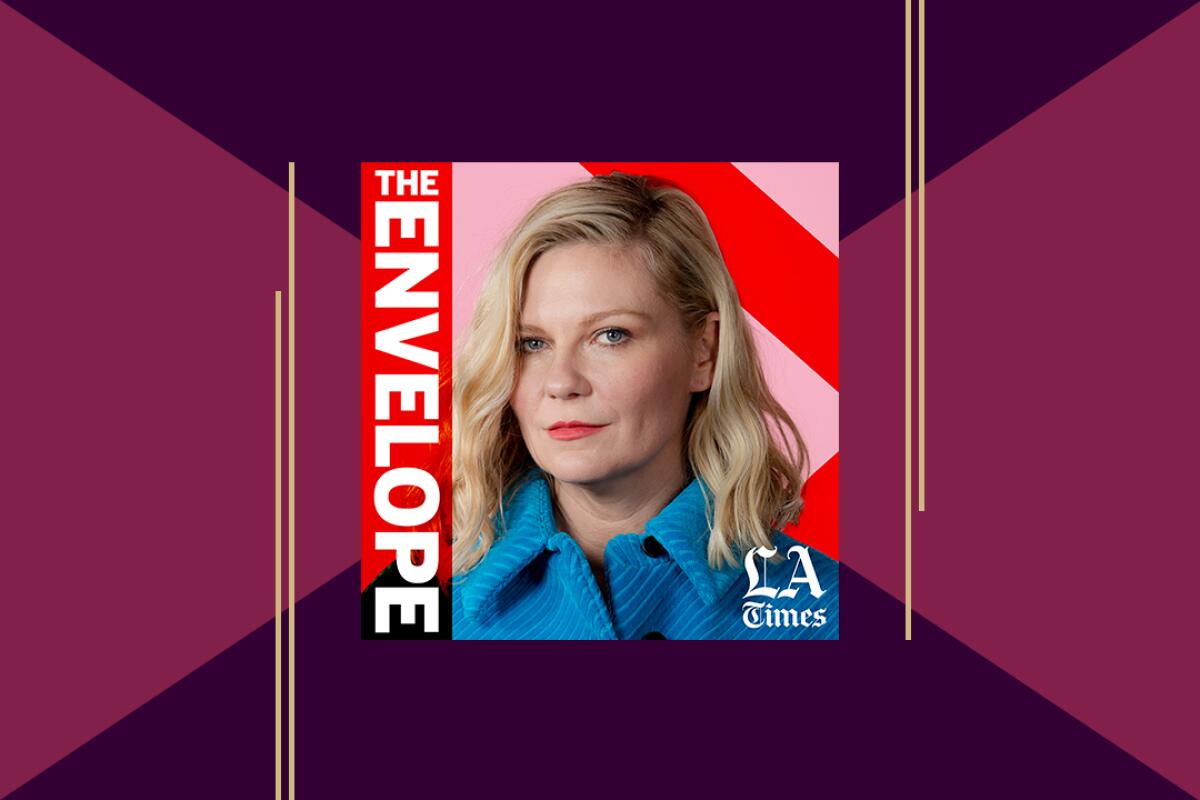Comedians wanted Spotify to pay them more royalties. Their albums were removed

- Share via
This is the Dec. 7, 2021, edition of the Wide Shot, a weekly newsletter about everything happening in the business of entertainment. Sign up here to get it in your inbox.
To take a page from Spotify Wrapped — the audio streaming giant’s year-end viral marketing campaign — one of this newsletter’s top genres is “copyright disputes.”
So, of course, I’m fascinated by the recent beef between Spotify and a number of famous comedians whose recordings were taken off the platform amid an effort by artists to extract more money from Daniel Ek’s Swedish streamer.
Albums by Jim Gaffigan, John Mulaney, Kyle Kinane and Kevin Hart have disappeared from Spotify as a group of comics seeks royalties for the words underlying their recordings. In other words, they want to be paid for their material, itself, as well as their recordings of it.
To understand what exactly the comedians want from Spotify, it helps to know a bit about how music compensation works. There are two main types of royalties in recorded music — those for performers and those for songwriters and composers.
The go-to illustrative example is that when you stream the Whitney Houston version of “I Will Always Love You” on Spotify, the company pays a royalty that goes to the late Houston’s estate, but also a separate cut for Dolly Parton, who wrote the original song.
The comedians argue that Spotify, as well as other companies including Sirius XM and Pandora, should be paying them similarly as the writers of the jokes, not just as the people performing the bits.
Primarily leading the charge in this skirmish is Jim King, CEO of the Nashville-based company Spoken Giants, which was founded in 2019 to administer royalties for spoken word artists. King used to be an executive at the big performance rights organization BMI, one of the groups that collects and distributes pay for music publishers.
He argues that the so-called “literary rights” of comedians have always existed under U.S. copyright law but have historically not been a big enough potential revenue stream for a company like his to bother demanding payment. That has changed, he said, as streaming services and satellite radio provide increasingly massive platforms for comedy routines, podcasts and speeches.
“This is a right that has existed for decades and decades,” he said. “Now we’re exercising it on behalf of our members.”
Spoken Giants is also seeking back payments on behalf of artists for their literary rights. King said the rates for comedy bits should be similar to the revenues for songwriters, which are set by the U.S. government.
Spotify said in a statement that it “has paid significant amounts of money for the content in question, and would love to continue to do so.”
“However,” the company continued, “given that Spoken Giants is disputing what rights various licensors have, it’s imperative that the labels that distribute this content, Spotify and Spoken Giants come together to resolve this issue to ensure this content remains available to fans around the globe.”
King called Spotify’s takedown of comedy albums an “aggressive” tactic. Not being on Spotify is bad for comedians because they’re missing out on a giant platform and royalties as the two sides work out their differences.
This controversy is familiar ground for Spotify. Royalties in the music business are notoriously complicated, and that has led to blow-ups over who gets paid what and how much. As the biggest subscription-based music streaming company, Spotify has been at the center of many such disputes.
As Spotify was filing for its IPO in 2018, it was sued for $1.6 billion by a music publisher over so-called mechanical royalties, a type of payment with roots dating to the early 20th century and the reproduction of musical compositions on player-piano rolls (I told you these things were weird). That lawsuit was settled.
In 2019, Eminem’s publisher filed a copyright infringement lawsuit against Spotify, alleging that the streamer did not have the proper license to host about 250 of the rapper’s songs. Earlier this year, hundreds of K-pop songs were removed from Spotify amid a dispute with the artists’ distributor.
“Spotify has done to comedians what it did to songwriters who complained that the company was unlawfully profiting from their works — close the door after the horse has left the barn with a takedown,” said music attorney Christian L. Castle in an email.
The frequent fights reflect an ongoing tension for Spotify. The company is credited with popularizing a subscription model that has basically saved the music industry from ruin and built $44 billion in stock market value in the process. But artists, naturally, want their fair share.
Now comedians are getting a taste of what musicians have dealt with for years.
Stuff we wrote

— A sexual misconduct claim against Chris Cuomo was the last straw for CNN, reports Stephen Battaglio. The cable news network was investigating the anchor’s role in guiding his brother Andrew’s sexual harassment crisis. Two days after being fired from CNN, Chris Cuomo exited his other media platform, a daily program on SiriusXM satellite radio.
— Congress members blast a proposed Discovery WarnerMedia merger. Lawmakers say Discovery’s $43-billion takeover raises “significant antitrust concerns” and warrants increased scrutiny from the U.S. Department of Justice’s antitrust division.
— What is Alec Baldwin thinking? I wrote about the actor’s decision to give an ABC News interview about the deadly shooting on “Rust,” and why legal experts say the move was a “no-upside situation.”
Number of the week

United Talent Agency is sponsoring a SPAC focused on gaming and the “creator economy,” putting the company one “metaverse” shy of a media buzzword hat trick.
The special purpose acquisition company, dubbed UTA Acquisition Corp., listed its stock on the Nasdaq exchange at $10 a share. UTAA expects to raise at least $200 million from the offering, which will close Dec. 6, my colleague Wendy Lee reported.
As we’ve written here before, SPACs exist for the sole purpose of taking other companies public through acquisition. They became a popular fundraising mechanism over the last couple of years, including among the technology, entertainment and media set.
UTAA said it planned to acquire a company that had compelling intellectual property, potential to scale and a proven operating team.
UTA’s interest in gaming and e-sports isn’t new. The rising industry of famous video game influencers has become a lucrative opportunity for talent agencies looking for bankable stars.
BuzzFeed is a public company

Wendy Lee reports:
Hype for BuzzFeed’s debut on the public market didn’t go viral among many investors.
The stock, which began trading on Monday, closed at $8.56 a share on the Nasdaq, down 11%. Its weak opening wasn’t surprising to SPAC observers, given that many of the investors in 890 Fifth Avenue Partners, the SPAC that BuzzFeed merged with, had pulled out before the deal closed.
BuzzFeed had raised $16 million as part of the SPAC and secured $150 million in convertible note financing. In June, the SPAC had $288 million cash in trust.
BuzzFeed CEO Jonah Peretti said on Friday that the company accounted for this scenario. He said raising funds through a SPAC made it easier to acquire Complex Networks for $300 million, rather than waiting on proceeds from a traditional IPO.
“Digital media doesn’t have clear comps in the public markets, and so we’re pioneering a path of being the first pure play digital media for millennial [and] Gen Z audiences,” Peretti said. “There’s a big opportunity for us to prove that that can be a really exciting business and once we prove it, I think there’s going to be others who will follow.”
But James Angel, associate professor of finance at Georgetown University’s McDonough School of Business, said the debut was lackluster. “This is an embarrassing way to go public,” Angel said. “It’s like your debut game and you fumbled the kickoff.”
Peretti said at a meeting with staffers on Monday that the company would focus on the long term and not worry about stock price fluctuations, which he said were to be expected for companies that were first in their category to go public.
Last week, BuzzFeed received some pushback from 61 staffers in its BuzzFeed News division who did a 24-hour walkout. The unionized staffers voiced their concerns about wages and whether staffers would be disciplined over traffic metrics.
Peretti said if a reporter were to ask someone at BuzzFeed News if they had been told they had to hit traffic quotas, “I think you will find no one has had that experience.”
On the walkout, Peretti said, “It’s just part of how a lot of the news unions have negotiated where they want to do it in public and they want to do it on social media. But, you know, the only place you can make progress is at the bargaining table.”
You should be reading...
Some links may require a subscription to read.
— Walt Disney Co. will name Geoff Morrell as its next communications chief, succeeding Zenia Mucha as she retires at the end of the year. (The Hollywood Reporter)
— “Don’t Look Up” director Adam McKay weighs in on his breakup with Will Ferrell, among other things. (Vanity Fair)
— Lina Khan’s battle to rein in big tech. As monopolies and other large companies gain increasing control of our daily lives, Khan is Joe Biden’s pick to do something about it. (The New Yorker)
— Up all night with a Twitch millionaire. The loneliness and rage of the Internet’s new rock stars. (The Washington Post)
— Great profile of Tony Kushner, America’s most important living playwright, whom Steven Spielberg convinced to help him update “West Side Story.” (New York Times)
— Spotify Wrapped, unwrapped. Spotify spies on us, and we kinda love it. For what it’s worth, my top five genres are apparently hard rock, punk, indie rock, classic rock and bubblegrunge, which are mostly different words for the same stuff. (Vox)
Hollywood production
Production in the Los Angeles area picked up after a slow Thanksgiving week. Here’s this week’s chart, with data from FilmLA.

Final shots
Indie rocker Snail Mail (a.k.a. Lindsey Jordan) last month released a fantastic album called “Valentine.” Here’s the title track.
Lastly, The Times’ awards season podcast, “The Envelope,” is back, and the first episode features a revealing interview with “The Power of the Dog” star Kirsten Dunst.

Inside the business of entertainment
The Wide Shot brings you news, analysis and insights on everything from streaming wars to production — and what it all means for the future.
You may occasionally receive promotional content from the Los Angeles Times.




